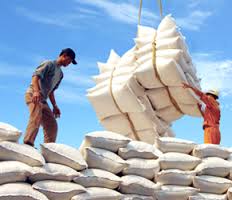Reap lists factors behind fall in rice exports
Rice Exporters Association of Pakistan (Reap) has pinpointed major factors behind decline in rice exports.
Reap Acting Chairman Chaudhry Samiullah told Business Recorder that lack of research and development in extra long grain seed has reduced the rice productivity per acre.
“New varieties always help increase per acre yield and have better ability to protect themselves against different diseases.
The new varieties also make farmers prosperous and help earn precious foreign exchange,” he added. He said the volume of Pakistani rice remained stagnant at 6 million tons during last 5 years but the local consumption grew more and hence a small quantity is left for export each year.
“We require advanced research and development (R&D) for higher per acre yield. Super basmati was evolved in 1996 and since then the (R&D) sector has failed to produce any new extra long grain seed,” he said. Comparing Pakistan with competitor India, he said that per acre yield of super basmati fell to 32 maunds from 48 maunds in Pakistan while India evolved seeds that provide over 50 maunds per acre.
Samiullah said other associations have their own training institutes to equip their workforce with latest technologies and standards and are funded by the government, but unfortunately the rice sector has been deprived of any infrastructure and facilities. Reap being second largest export association and second largest forex earner desperately needs government assistance,” he added. Load management by electricity distribution companies is another reason behind reduced milling capacity, ie, 50 percent. Some of our members complain of even 14 hours electricity shutdown in rural areas’ feeders. The milling capacity of rice millers has been halved; hence the availability of export quality rice is a distant dream.
He said load management by SNGPL is resulting in late drying of paddy. Unless paddy is dried, we can’t husk it to convert to rice and therefore rice is not available for export. Decreased supply pushes up the price of the commodity, rendering it uncompetitive, he added.
“The paddy is harvested in November and must be dried within days to ensure value addition. But unfortunately the gas supply is completely cut off in November and hence a significant quantity gets damaged and results in loss of foreign exchange,” he said. Samiullah urged the government to take appropriate measures and encourage farmers to adopt latest technologies for production boost.
